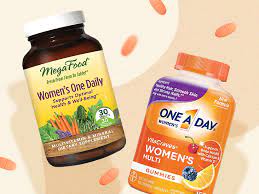what essential vitamins should i take
According to nutritionists, the following are the seven ingredients that should be included in your multivitamin: Vitamin D. Vitamin D aids in the absorption of calcium in our bodies, which is essential for bone health. ...\sMagnesium. It is an important nutrient, which implies that we must obtain it from our diets or from nutritional supplements. ...
Calcium is a mineral that is found in abundance in the body.
Zinc is a metal that is found in abundance in the environment.
Iron is a metal that is commonly used in construction.
Folate is a type of vitamin that is found in fruits and vegetables.
Vitamin B-12 is a water-soluble vitamin.
Consuming the necessary vitamins on a regular basis is critical to achieving and sustaining one's health and wellness goals. The body is unable to create essential vitamins on its own, thus they must be received through the consumption of food or the use of dietary supplements. The following is a list of some of the important vitamins that you ought to consider taking:
Vitamin D: Vitamin D is necessary for healthy bones and teeth because it helps the body absorb calcium. It facilitates the body's absorption of calcium and is essential for the formation and remodeling of bone tissue. Vitamin D can be received in three different ways: through exposure to sunlight, foods that have been fortified, and supplements.
Vitamin B12: Vitamin B12 is essential for proper nerve function, the creation of healthy red blood cells, and the synthesis of DNA. Because it is mostly found in items derived from animals, vegetarians and vegans may need to take a supplement in order to acquire enough vitamin B12 in their diets.
Vitamin C: Vitamin C is an antioxidant that aids in defending the body against the harm that can be caused by free radicals. Additionally, it is essential for the formation of collagen, which is critical for maintaining healthy skin, bones, and cartilage. Citrus fruits, berries, kiwis, tomatoes, and peppers are all examples of fruits and vegetables that are rich in vitamin C. Other sources include peppers and tomatoes.
Vitamin E: Vitamin E is an antioxidant that aids in shielding the body from the oxidative damage that can be caused by free radicals. Additionally, it helps promote the operation of the immune system and is essential for maintaining healthy skin and eyes. Nuts, seeds, and oils derived from vegetables are all good sources of vitamin E.
Vitamin A: Vitamin A is essential for maintaining healthy skin, as well as vision and immunological function. Foods including liver, fish, and dairy products, as well as orange and green vegetables, are good sources of this vitamin.
Vitamin K: Vitamin K is essential for maintaining healthy bones and for the coagulation of blood. You can get it from fermented foods like sauerkraut and natto, as well as from leafy green vegetables like spinach and kale. You can also get it from natto and sauerkraut.
Folate is a B vitamin that is essential for normal cell growth and development, especially for women who are pregnant. You can receive it through eating foods including leafy green vegetables, citrus fruits, and grains that have been fortified.
Iron: The synthesis of red blood cells and the transportation of oxygen rely heavily on iron's presence. It is found in foods such as beef, chicken, fish, legumes, and cereals that have been fortified.
Magnesium: Magnesium is essential for the proper functioning of nerves and muscles, as well as for the health of the heart and bones. Nuts, seeds, legumes, and vegetables with leafy greens are all good sources of this nutrient.
It is vital to keep in mind that despite the fact that these essential vitamins are necessary for one's health to function at its peak, one should not rely on them in place of a nutritious diet. The best method to ensure that you are getting all of the necessary nutrients into your body is to consume a diet that is well-rounded and contains a wide variety of fruits, vegetables, whole grains, lean proteins, and healthy fats.
Additionally, before beginning to take any new supplements, it is essential to see a healthcare expert. This is because certain vitamins and minerals can interact negatively with certain drugs or medical conditions.
To summarize, getting enough of the necessary vitamins is critical to preserving one's health and well-being to the fullest. You should make sure that you get enough of certain critical vitamins like vitamin D, vitamin B12, vitamin C, vitamin E, vitamin A, vitamin K, folate, and magnesium. However, they must be consumed in conjunction with a nutritious diet and under the direction of a qualified medical professional in order to be effective.





